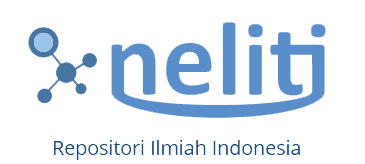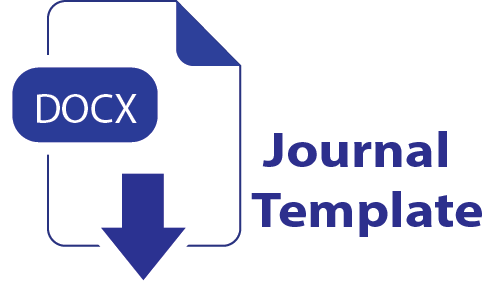KEPEMIMPINAN TRANSFORMASIONAL DALAM MANAJEMEN SUMBER DAYA MANUSIA (STUDI KASUS APARATUR SIPIL NEGARA PEMERINTAH KOTA KUPANG NUSA TENGGARA TIMUR)
DOI:
https://doi.org/10.35908/jeg.v6i1.1327Abstrak
The purpose of this research was to measure the principles of transformational leadership in human resource management. This research was conducted for 7 (seven) months from September 2019 to February 2020 at the Regional Government Secretariat of Kupang City (Pemkot Kupang) East Nusa Tenggara (NTT) Indonesia. The population of respondents in this study were the State Civil apparatus (ASN) within the scope of the Kupang City Government, East Nusa Tenggara, group I to group IV, totaling 370 ASN Kupang City government consisting of ASN group I as many as 8 of respondents, ASN group II as many as 80 of respondents, group III as many as 215 of respondents, and group IV as many as 67 of respondents. The type of data in this study consists of primary data and secondary data. The analysis used in this research is descriptive analysis with data processing and analysis using a Likert scale. The results showed that the transformational leadership within the City Government by policy makers has generally been implemented well. This can be seen from the ability to build a vision, inspirational communication, leaders who provide support, increase in intellectual abilities, and respect for individuals.
Â
Keywords: transformational leadership, state civil apparatus, Kupang City Government
Referensi
Anoraga, P., 2004. Manajemen bisnis. Jakarta: Rineka Cipta.
Avolio, B. J., Bass, B. M. & Jung, D. I., 1999. Re-examining the components of transformational and transactional leadership using multifactor leadership quetionnaire. Journal of Occupational and Organizational Psychology, Volume 71, pp. 441-462.
Barbuto, J. E., 1997. Taking the charisma out of transformational leadership. Journal of Social Behaviour and Personality, 12(3), pp. 689-697.
Bass, B. M. & Avolio, B. J., 1990. The implications of trasactional a transformational leadership for individual, team and organizational development. Organizational Dynamics, Volume 4, pp. 231-271.
Bersona, Y. & Avolio, B. J., 2004. Transformational leadership and the dissemination of organizational goals: A case study of a telecommunication firm. The Leadership Quarterly, Volume 15, pp. 625-646.
Cannella, A. A. J. & Monroe, M. J., 1997. Contrasting perspectives on strategic leaders: Toward a more realistic view of top managers. Journal of Management, Volume 23, pp. 213-237.
Chen, L. Y., 2004. Examining the effect of organization culture and leadership behaviors on organizational commitment, job satisfaction and job performance at small and middle sized firms of Taiwan. Journal of American Academy of Business, pp. 432-438.
Fuller, J. B., Patterson, C. P., Hester, K. & Stringer, D. Y., 1996. A quantitative review of research on charismatic leadership. Psychological Reports, Volume 78, pp. 271-287.
Hersey, P. & Blanchard, K. H., 1995. Manajemen perilaku organisasi: Pendayagunaan sumber daya manusia. Edisi Keempat ed. Jakarta: Erlangga.
House, R. J., 1996. Path-goal theory of leadership: Lessons, legacy, a formulated theory. The Leadership Quarterly, 7(3), pp. 323-353.
Kark, R. & Shamir, B., 2002. The Dual Effect of Transformational Leadership: Priming Relational and Collective Selves and Further Effects on Followers. Monographs in Leadership and Management, 5(2), pp. 77-101.
Kurniawan, M. D. P., 2020. The influence of leadership style on performance in the Bidang Pemberantasan Badan Narkotika Nasional Provinsi Sumatera Selatan. Jurnal Ilmiah Ekonomi Global Masa Kini, 11(1), pp. 16-21.
Lowe, K. B., Kroeck, K. G. & Sivasubramaniam, N., 1996. Effectiveness correlates of transformational and transactional leadership: A meta-analytic review of the MLQ literature. The Leadership Quarterly, 7(3), pp. 385-425.
McCleland, D. C., 1997. Memacu masyarakat berprestasi: Mempercepat laju pertumbuhan ekonomi melalui peningkatan berprestasi. Jakarta, Indonesia: Intermedia Press.
Rafferty, A. E. & Griffin, M. A., 2004. Dimensions of transformational leadership: Conceptual and empirical extensions. The Leadership Quarterly, 15(3), pp. 329-354.
Riwukore, J. R., 2010. Effect of transformational leadership, competency motivation and commitment to work organization and performance of employees in Goverment Secretariat City Kupang, East Nusa Tenggara [Disertasi], Surabaya: Program Doktor Ilmu Ekonomi, Program Pascasarjana, Universitas 17 Agustus 1945.
Riwukore, J. R., 2020. Kepemimpinan transformasional peningkatan sumber daya manusia. Solok Sumatera Barat (Indonesia): CV. Insan Cendekia Mandiri.
Riwukore, J. R. & Habaora, F., 2019. Perception of farmers on the performance of extensionist in the pasture agroecosystem of Timor Tengah Utara District. Asian Journal of Agricultural Extension, Economics & Sociology, 29(2), pp. 1-10.
Sadler, P., 2003. Leadership: style, role models, qualities, behavior, concept. 2 ed. Kogan London: Page Limited.
Stoner, James, A. F. & Gilbert, F. E. R., 1996. Management. Jakarta: PT. Prenhallindo.
Sugiyono, 2017. Methods of quantitative, qualitative and combination writing (mixed methods). Bandung, Indonesia: Alfa Beta Press.
Yukl, G., 1994. Kepemimpinan dalam organisasi. Jakarta: Prenhallindo.
Zaccaro, S. J. & Klimoski, R. J., 2001. Leadership, vision and organizational effectiveness. In: The nature of organizational leadership: Understanding the performance imperatives confronting today's leaders. Sanfrasisco USA: Jossey-Bass Publishers.
Unduhan
Diterbitkan
Cara Mengutip
Terbitan
Bagian
Lisensi
Authors who publish with this journal agree to the following terms:
- Authors retain copyright and grant the journal right of first publication with the work simultaneously licensed under a Creative Commons Attribution License   that allows others to share the work with an acknowledgement of the work's authorship and initial publication in this journal.
- Authors are able to enter into separate, additional contractual arrangements for the non-exclusive distribution of the journal's published version of the work (e.g., post it to an institutional repository or publish it in a book), with an acknowledgement of its initial publication in this journal.
- Authors are permitted and encouraged to post their work online (e.g., in institutional repositories or on their website) prior to and during the submission process, as it can lead to productive exchanges, as well as earlier and greater citation of published work










